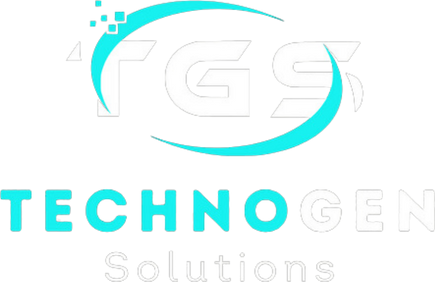In the ever-evolving world of search engine optimization (SEO), ranking higher on Google is crucial for any business, especially in competitive industries. Techno Gen Solutions delivers digital marketing services that help businesses enhance their online presence. This comprehensive guide will explain how beginners can implement effective SEO strategies to rank higher on Google.
Understanding the SEO Strategy for Beginners
Before diving into specific strategies, it’s essential to understand the foundation of SEO. Search Engine Optimization refers to the practice of optimizing a website to improve its ranking in search engine results pages (SERPs). Google uses complex algorithms to rank web pages based on relevance, quality, and user experience.
Keyword Research: The Foundation of SEO Success
What Are Keywords?
Keywords are the terms and phrases that users type into search engines when looking for information. Identifying the right keywords for your business is crucial. This process is called keyword research, and it helps you understand what your audience is searching for.
How to Perform Keyword Research
There are several tools available for keyword research, such as Google Keyword Planner, SEMrush, and Ahrefs. Here’s how to conduct effective keyword research:
- Identify Your Niche: Start by defining the primary topics related to your business.
- Analyze Competitors: Look at competitors’ websites to see which keywords they are ranking for.
- Use Long-Tail Keywords: These are longer, more specific search phrases that have less competition but can drive more targeted traffic.
Tip: Aim for a mix of short-tail and long-tail keywords to capture a broader audience.
On-Page SEO Optimization
Title Tags and Meta Descriptions
Your title tag and meta description are the first things people see in search results. Make sure they are compelling and include your target keywords. Google uses these elements to determine the relevance of your content, so optimizing them can significantly improve your ranking.
Header Tags (H1, H2, H3)
Using proper header tags helps both search engines and users understand the structure of your content. The H1 tag should include your primary keyword and reflect the main topic of your page. Subheadings (H2, H3) should organize the content into logical sections, making it easier to read.
Content Quality and Relevance
Content is king in the world of SEO. Google prioritizes websites that offer valuable, well-written, and relevant content. Make sure your content is:
- Original and free from plagiarism.
- Informative and addresses user intent.
- Engaging with a mix of text, images, and videos.
Tip: Aim for at least 1,000 words per article to cover your topic thoroughly.
Technical SEO: Optimizing the Backend of Your Website
Site Speed
Google considers site speed as a ranking factor. A slow website can lead to higher bounce rates and lower user satisfaction. Tools like Google PageSpeed Insights can help you identify areas where your site can improve.
Mobile Friendliness
With more users accessing the web via mobile devices, having a mobile-friendly website is essential. Google’s Mobile-First Index ranks websites based on their mobile version, so ensure your site is fully optimized for mobile users.
SSL Certificate
Having an SSL certificate not only ensures that your website is secure but also helps improve your rankings. Google gives preference to secure websites (those with “HTTPS”).
XML Sitemap and Robots.txt
An XML sitemap helps search engines index your website more efficiently. A properly configured robots.txt file ensures that search engines crawl only the relevant pages.
Off-Page SEO: Building Authority Through Backlinks
What Are Backlinks?
Backlinks are links from other websites to yours. They serve as votes of confidence for your content. The more high-quality backlinks you have, the higher your site will rank in Google.
How to Build Backlinks
- Guest Blogging: Write guest posts for reputable websites in your industry.
- Social Media Promotion: Share your content on social media to increase its visibility.
- Influencer Outreach: Collaborate with influencers or bloggers to create content that links back to your site.
Tip: Focus on earning high-quality backlinks from authoritative websites. Avoid spammy or low-quality links, as they can harm your ranking.
User Experience (UX) and SEO
Why User Experience Matters
Google’s algorithms are increasingly focused on user experience. A website that provides a positive experience will rank higher than one that frustrates users. Here are some factors that affect user experience:
- Navigation: Make sure your site is easy to navigate.
- Readability: Use legible fonts and break up large chunks of text with images or subheadings.
- Internal Linking: Create a network of internal links to guide users through your content.
Bounce Rate and Dwell Time
The bounce rate refers to the percentage of visitors who leave your site after viewing only one page. A high bounce rate can negatively affect your ranking. Dwell time, or the amount of time users spend on your site, is another factor that Google considers.
Tip: Engaging content and easy navigation can help reduce bounce rates and increase dwell time.
Local SEO: Optimizing for Local Search
Why Local SEO Is Important
For businesses like Techno Gen Solutions, optimizing for local SEO is essential. Local SEO helps your business appear in location-based searches, making it easier for customers to find you.
How to Optimize for Local SEO
- Google My Business: Claim and optimize your Google My Business profile. Ensure that all your business information is accurate.
- Local Citations: List your business in local directories like Yelp or TripAdvisor.
- Local Keywords: Use location-specific keywords in your content and meta tags.
Monitoring and Measuring SEO Success
Google Analytics and Search Console
Use tools like Google Analytics and Google Search Console to track your website’s performance. These tools provide valuable insights into how users interact with your site and how well it is ranking.
Key Metrics to Monitor
- Organic Traffic: The number of visitors coming from search engines.
- Keyword Rankings: Track how well your target keywords are ranking over time.
- Conversion Rate: Measure how effectively your website is converting visitors into customers.
Tip: Regularly review these metrics to adjust your SEO strategy as needed.



Leave A Comment